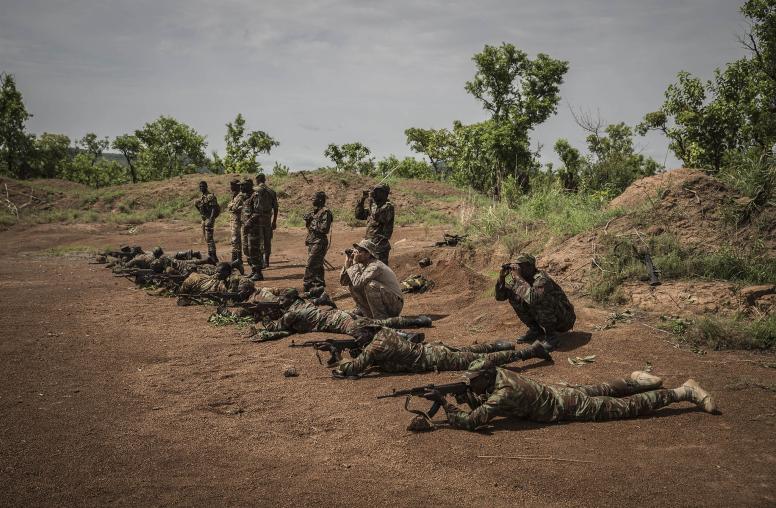USIP’s Work on Violent Extremism
A USIP Fact Sheet
In over 20 years since the terrorist attacks of September 11, 2001, the threat from extremist violence and terrorism has evolved considerably. Terrorist attacks worldwide have increased in number, diffused geographically and diversified ideologically. These developments in the terrorist landscape have been fueled by violent conflict and state fragility, and they present opportunities for strategic rivals to challenge the value of democratic governance and the rules-based international system.
USIP’s Work
USIP recognizes extremist violence as an expression of violent conflict and engagement in it as a form of violent behavior. Our work is calibrated to drive toward a world without fear of extremist violence by amplifying the factors that promote community resilience to extremist violence and protect against engagement in it: belonging, agency, meaning and well-being.
As a global focal point for transforming conventional responses to terrorism, USIP equips policymakers, practitioners and other stakeholders with tools and insights to effectively respond to the instrumentalization of violence by nonstate actors. USIP curates knowledge, builds collaborative partnerships, strengthens capacities and convenes and advises key stakeholders on peacebuilding approaches that work across individual, social and structural levels to reduce discrimination and marginalization, bridge social divides, and promote accountable governance.
This work supports the U.S. National Strategy for Counterterrorism and the Global Fragility Act by marshalling our distinctive institutional capabilities to prevent mobilization into extremist violence, facilitate disengagement from it, and shrink the pool of people vulnerable to exploitation by violent extremist forces.
Robust Research
RESOLVE Network. USIP manages the Researching Solutions to Violent Extremism (RESOLVE) Network. RESOLVE is a global consortium of researchers, organizations, policymakers and practitioners committed to improving practice and policy with better and locally informed research.
Learning from local peacebuilding approaches. Through case studies in sub-Saharan Africa, USIP and the RESOLVE Network provide insights into mechanisms for addressing community-based armed groups and extremist violence as they relate to local conflict dynamics. The project will culminate in a local peacebuilding framework for preventing and countering violent extremism (P/CVE).
Practitioner Support and Community-Centered Programming
Addressing the human legacies of ISIS. In Iraq, Tunisia and Central Asia, the Institute works with local leaders, civil society and national governments to help countries and communities prepare for the return of people who traveled to live or fight with ISIS, build mechanisms to end cycles of revenge, and address communal grievances that perpetuate divisions and conflict.
Elevating women’s roles. The Women Preventing Violent Extremism (WPVE) program supports women leaders in addressing national policies and community approaches to P/CVE in the Greater Horn of Africa and Sahel. WPVE fosters collaboration and dialogue between communities and national decisionmakers and supports regional platforms for women across Africa.
Religious and psychosocial support for trauma survivors. USIP trains local religious actors and mental health and psychosocial support (MHPSS) professionals in regions like Latin America and Southeast Asia to address cycles of violence.
Thought Leadership and Informing Policy
Reviewing the P/CVE Toolbox. USIP is undertaking an effort to understand how different types of conflict and violence intersect. USIP will explore the complex dynamics faced in contemporary conflict environments and what array of tools and partnerships across disparate areas of practice can create efficiencies, reduce duplication of effort, and amplify impact.
Global Counterterrorism Forum. USIP organizes regional workshops connecting experts and practitioners with policymakers to share experiences, develop strategies and draft good practices to manage the return of people who traveled to live or fight with ISIS.
Peacebuilding approaches to P/CVE in the southern Philippines. USIP collaborates closely with local partners to support the development of evidence-based approaches to P/CVE that complement the implementation of the Comprehensive Agreement on the Bangsamoro.



